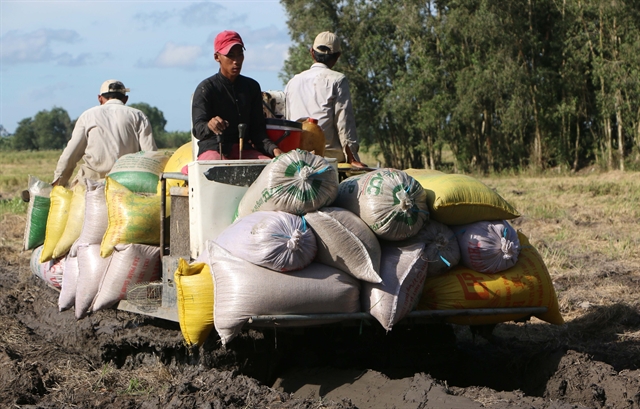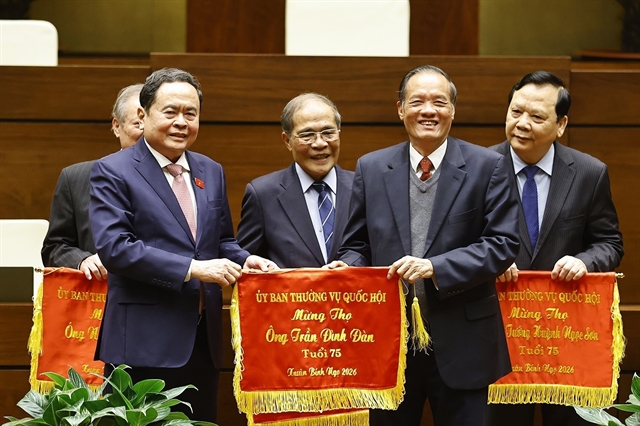 Economy
Economy

The Cửu Long (Mekong) Delta province of Hậu Giang will develop its agriculture towards improving added value and sustainable development, according to its Department of Agriculture and Rural Development.

|
| Farmers harvest rice in Hậu Giang Province’s Vị Thanh City. — VNA/VNS Photo Duy Khương |
HẬU GIANG — The Cửu Long (Mekong) Delta province of Hậu Giang will develop its agriculture towards improving added value and sustainable development, according to its Department of Agriculture and Rural Development.
Trần Chí Hùng, director of the department, said the province would restructure its agriculture toward using advanced and modern farming techniques and building new-style rural areas.
The province would increasingly apply high technologies to improve yield and quality of agricultural produce, reduce production costs, and adapt to climate change, he said.
Hậu Giang, located in the centre of the delta, has more than 80 per cent of its population working in the agriculture sector.
The province has 134,000ha of arable land, including 82,000ha of rice and 30,000ha of fruits.
According to Lê Tiến Châu, chairman of the province’s People’s Committee, the area has potential for developing agriculture but its agriculture production has many limitations.
The province’s agricultural production has not shifted to commercial production and has not had a strong linkage between farmers and companies to guarantee outlets, according to the department.
The number of companies investing in the agriculture sector is small and the added value of agriculture produce is low.
In recent years, the province has established specialised farming areas for domestic consumption and export.
The specialised farming areas include 32,000ha of high quality rice, 8,000ha of sugarcane, 2,500ha of pineapple, 15,000ha of fruits and 1,500ha of aquaculture.
Hậu Giang has 13 agricultural produce granted brand names. They include Phú Thành Năm Roi grapefruit, Ngã Bảy king orange, Hậu Giang 2 rice, Hậu Giang anabas, Long Trị sweet mandarin, Hậu Giang mango and Hậu Giang soursop.
The province has 173 agricultural co-operatives and one agricultural co-operative alliance, including 25 new agricultural co-operatives established last year.
Many agricultural co-operatives have co-operated with companies to guarantee outlets and improve income for their members.
Nguyễn Thiện Hòa, head of the Rural Development Sub-department, said about 40 companies and enterprises are signing farming contracts with 23,507 households and guarantee outlets for their 24,349ha of rice.
Some other crops like seedless lime, soursop and okra in some localities have also been guaranteed outlets, he said.
The province has encouraged farmers to switch to grow crops with high value and stable outlets to improve income.
In Phụng Hiệp District, which is the delta’s largest sugarcane growing area, farmers turned 1,056ha of sugarcane into growing other crops like seedless lime, soursop, Ido longan and pineapple last year.
Many farmers in Phụng Hiệp’s Phương Bình Commune have contracted with companies to grow MD2 pineapple and have stable outlets.
Nguyễn Văn Sỹ, head of the hi-tech agriculture co-operative group in Phương Bình, said after many years facing losses from growing sugarcane because of the low price, he switched to grow MD2 pineapple and now has good income.
Under the farming contracts, pineapple farmers earn a profit of VNĐ20 million (US$860) per 1,000sq.m a crop, but they could only earn VNĐ2 – 3 million ($86 - 130) per 1,000 sq.m from growing sugarcane previously, he said.
“The lives of many households in the commune have become well-off after switching from growing sugarcane to growing MD2 pineapples.” VNS




